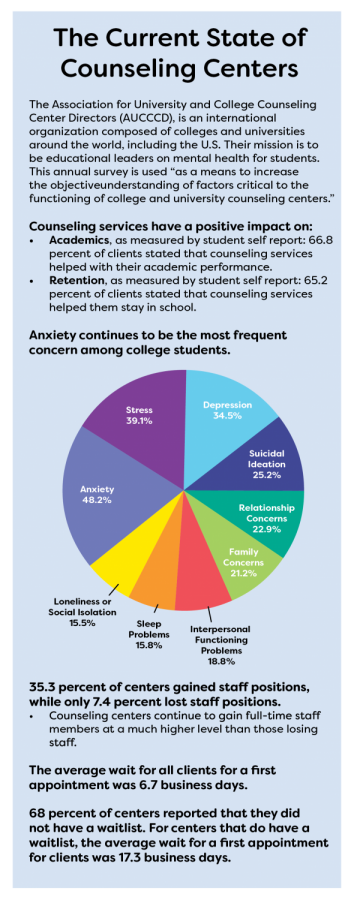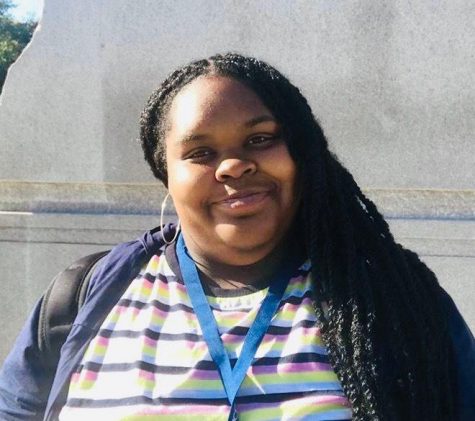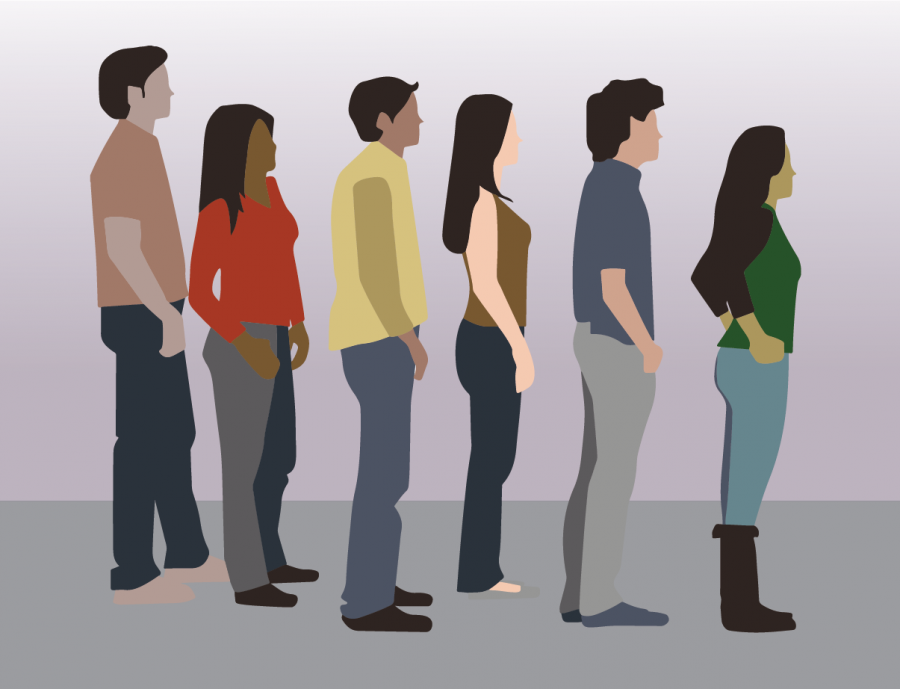Counseling Center: the highest wait list in NJCU history
The counseling center on campus has nearly 90 students waiting to see therapists— the longest wait list in the school’s history. NJCU offers free counseling for students who need support and wait lists have been an issue in the past. This fall, the center had already begun a wait list by the third day of classes.
The center currently has three counselors working in the office. Last year there were four. The Director of Counseling and Wellness Services, Abisola Gallagher said that it is still not enough. “We are supposed to have a certain amount of counselors based on the amount of students attending the university. We are supposed to have like, five and a half counselors.”
The Gothic Times reached out to Jimmy Jung, vice president for Student Affairs, who consulted with the Dean of Students, Dr. Lyn Hamlin. In an email interview, Jung said, “The fourth counselor at the center left in June and the administration has since been in the process of hiring a licensed therapist, who can also deal with alcohol and other drug issues, homelessness, and food insecurity.” Jung said that early in the spring semester, “we will have consultants assess and evaluate our mental health and wellness model. We expect that some useful long-term recommendations will be provided.”
As for when the Counseling Center can expect new hires, Jung said, “We are in the process of checking references for the finalists for [a] new therapist and in the final approval stage for part-time counselors.”
“A demand for counseling and on campus mental health resources for students has increased in universities around the U.S.” Jung noted, “Using the data provided by the NJCU counseling center, student demand for services has been consistent up until this year, when demand drastically increased.”
A survey conducted by the Association for University and College Counseling Center Directors (AUCCCD) reported that most counseling centers are increasing their hires. The survey, taken by 621 colleges, including NJCU, says “35.3% of centers gained staff positions. Counseling centers continue to gain staff member FTE [Full-Time Equivalent] at a higher level than those losing staff.”
Short-Term Solutions
According to Jung, current short-term solutions that the Counseling Center has in place to address the nearly 90 student wait list include a “While You Are Waiting” email sent to students immediately after they are placed on the wait list. It is “composed of a list of self-care options students are encouraged to use while waiting for an appointment;” initial appointments to provide immediate support to students; and referrals to off-campus clinics or organizations are offered.
Gallagher says the center offers appointments that focus on an immediate solution for students who may not need long-term counseling sessions. “We provide consult appointments which are one time appointments that are solution focused to support students to quickly resolve problems.”
Once a student does manage to get an appointment, NJCU only offers 12 sessions per academic year. However, according to the AUCCCD survey, over 55 percent of counseling centers do not have a session limit.
 Wait Lists: Across the U.S.
Wait Lists: Across the U.S.
According to the International Association of Counseling Services (IACS), if there is a wait list “Students may choose to not seek counseling at the counseling center. Also, students who are put on a wait list are more likely to leave the university.” Online information from IACS goes on to say, “A study by Wilson, Mason, and Ewing (1997) in the Journal of Counseling Psychology found that attrition rates increased by 14 percent for those students who were put on a wait list compared to those who received timely counseling.” The AUCCCD survey reported that 65.2 percent of students that were asked about their counseling centers said that counseling helped them stay in school.
In 213 schools, any student, including those on the wait list, had to wait an average of six days for their first appointment at the center. However, in 78 schools, those on the wait list had to wait an average of 17 days for their first appointment. Last year, NJCU students had to wait for an average of 33.5 days before they were able to see a counselor.
Looking Ahead
In an email interview, Lynn Linde, senior director of the Center for Counseling Practice, Policy and Research of the American Counseling Association said there are ideas for colleges to improve this situation.
“One of the ways in which colleges can better manage providing adequate and appropriate mental health services for students is by first assessing the needs for services among their student body. While we know that the number of students with mental health needs is increasing, the needs are probably not uniform across all campuses. Additionally, there are different types of needs, and some students may need more services and for a longer period of time than other students. Colleges need to determine what services are currently available, what the need is, and then what additional assistance is needed. It may be more counselors, but there may also be a need for interventional programs such as stress reduction, relationship issues, self-care, etc.”
A graduate student, Zhane Malone, from Peers Educating Peers Program (P.E.P.) who is majoring in counseling, says the program is willing to help other students with mental health. “Us as students should have an action plan to help these students since it is not in our power to hire another counselor,” Malone said.
Giselle Nunez, a student majoring in Early-Child Education says mental health is important. “With only three therapists, it should be their main priority. They should hire more counselors. [Students] need someone to talk to, to be there for them in their time of need.”
“Your health is first. That degree won’t mean anything if you’re dead”
Aleishka Ferrer, a major in Math, said students who are attending the center and are on the waitlist should let their voices be heard. “Get a petition, and send it to the board. If they are not listening or doing anything to hire more staff then take it [to] someone who is higher, like the governor. Your health is first. That degree won’t mean anything if you’re dead. If the school is not doing their job, look for someone higher to do it. Mental health is serious and it should not take long for someone to help.”
Gallagher said despite the wait list, the center will continue to make sure all students that come to the center leaves content. “We do the best we can. We all work hard to make every student who come to this center happy.”
Do you have an experience with the Counseling Center wait list? The Gothic Times wants to hear from you. Email Kenise Brown, News Editor, at [email protected] or Monica Sarmiento, Editor-in-Chief, at [email protected].
Resources
If you or a loved one are struggling with mental health issues, please use the following resources to seek professional help.
NJCU Counseling Center
GSUB Room 308 | 201-200-3165
Mon-Thurs 8:30 a.m. – 7 p.m.
Fri 8:30 a.m. – 4:30 p.m.
After Hour Crisis: 201-200-3128 for Public Safety or call 911 from off-campus
Bridgeway Crisis Intervention Services
152 Central Ave., Jersey City | 201-855-2539
Mon-Fri 9:00am – 8:00pm
Sat-Sun 10:00am – 6:00pm
Hudson County Mental Health Crisis Hotline
201-433-6161, 24 hrs. a day
National Suicide Prevention Lifeline
800-273-8255 , 24 hrs. a day
National Hopeline Network
800-442-4673, 24 hrs. a day

Kenise Brown served as the Editor in Chief for the 2019-2020 and 2020-2021 school years. She graduated with her degree in Media Arts and a minor in English...



